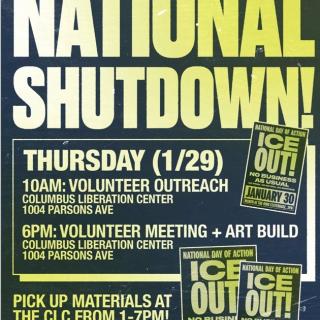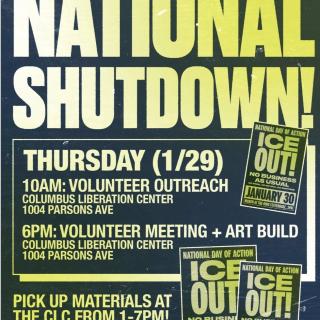Like a violent storm the US Army sought to squash any signs of expression when a group of graduating black female West Point cadets took a photo with raised fists. Their raised fists a sign of solidarity with Black Lives Matter.
Military insiders have reported the black female cadets have complained to senior officers the racism within the mostly white and male-dominated academy is too much to take. The military would never allow these cadets to speak publicly, however, so it may never be known whether they meant the picture to go viral.
Even so, their protest hopefully will raise awareness in the Pentagon. These young women need protection from racism – and worse – as they move ahead into active duty. The Free Press and this reporter know all-to-well about the “non-combat related” deaths suffered by black female soldiers during the so-called war on terror. This reporter won a Project Censored award in 2012 for writing about the mysterious and questionable deaths of female soldiers, many of them African-American.
The number of black females in our all-voluntary military continues to grow. In a way, young African-American women became a boon for the armed forces. In the age of the Great Recession the pay and future benefits were difficult to turn down.
“Black women are overrepresented in the military, meaning a higher number are enlisted compared to the percentage of the population,” says Colleen Bushnell, an Air Force veteran and founder of Veteran Empowerment Team USA. “This also means they are probably overrepresented among Military Sexual Trauma (MST) victims.”
Bushnell is no stranger to MST. She was raped twice while enlisted. Once by a male commanding officer and once by a female commanding officer. She still suffers from PTSD.
As the military ranks of black women increased during the last decade-and-a-half, so did the number who lost their lives in Iraq and Afghanistan.
But making these deaths even more mind-numbingly painful for the soldier’s family was how the military explained their deaths – especially those that were non-combat related. Many families questioned the military’s account and believed the military wasn’t truthful or forthcoming. Nearly twenty families told this reporter they believed a cover-up was used.
And what makes these non-combat related deaths significant when it comes to the Black Lives Matter movement was how the public reacted. Simply put, the public didn’t have a chance to react because even though some families were outspoken the mainstream media essentially ignored them. One of the families told this reporter they felt a shrinking and financially insecure media is too dependent on military advertising dollars to take a stand. Disturbing testament perhaps to how much control the US military has over its public image.
Two of the soldiers highlighted in this reporter’s winning Project Censored story were Private Lavena Johnson and Private Morganne McBeth.
The US Military has always claimed Levena Johnson’s death in 2005 was a suicide, but the evidence showing a homicide is well-documented. Her family refuses to give up on her, and Johnson’s story actually gained traction in the social media. Inspiring a Change.org petition that earned 37,000 signatures, for instance.
Turning their backs to the Johnson family, however, was the mainstream media. An editor of Ebony magazine publicly said they had been pressured by the Army to not run a story on Johnson or risk losing advertising dollars. 60 minutes spent thousands on the Johnson’s story and even had her body exhumed. 60 minutes reporter Armen Keteyian told this reporter, “There’s just nothing there.”
Earlier this year, however, a startling new development in Johnson’s death came to light.
Donald V. Watkins, a prominent Alabama attorney and businessman, took on the case with a team of investigators. They found that in November 2012, a month after this reporter won the Project Censored award, the Secretary of Defense and the Joint Chiefs of Staff had issued a military-wide directive for Johnson’s death. That any Freedom of Information inquiry regarding the “investigation of PFC. Lavena Johnson” must first be approved by the offices of the Secretary of Defense and Joint Chiefs of Staff.
Watkins believes this is the first time a soldier’s “suicide” has been classified a national security matter.
“The military’s cover-up of Private Johnson’s murder was successful for more than a decade because she was a young black female Army private – a ‘nobody’ in the world of Bush, Rumsfeld, and the Pentagon’s top brass,” wrote Watkins on his Facebook page.
Supporting the Johnson’s claim of cover-ups are other families who also cannot entirely put the non-combat death of their family member in the past.
Private Morganne McBeth died in Iraq in 2010 and the military initially told the family Morganne “accidentally stabbed herself”. The family scoffed at the military’s version and pushed back for more answers. They believed their 19-year-old daughter, a paratrooper and paramedic was too smart, too grounded, to accidentally stab herself in the heart.
The family turned to their congressman for help and not long after Army investigators revealed that two white male suspects kept changing their story. Months later Army investigators finally charged one suspect with involuntary manslaughter and the other with obstructing justice. The suspects eventually plead guilty. But incredibly neither served more than 9 months in military prison.
Christopher McBeth is the older brother of Morganne and a veteran himself who’s served 13 years with two tours in Iraq. He recently told this reporter not once has the military ever spoken to him about his sister’s death.
“You were the main link to any information,” Christopher McBeth told me.
The deaths of Johnson, McBeth and others, tells us black female soldiers need protection and a voice. If anything, a salute to Black Lives Matter lets the world know just that.





